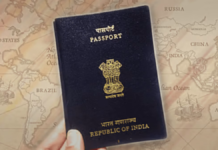Airbnb has emerged as a key driver of India’s travel economy, contributing ₹113 billion (USD 1.35 billion) to economic activity in 2024 and supporting 111,000 jobs, according to a new report by Oxford Economics commissioned by the platform. The findings highlight Airbnb’s growing influence in fueling domestic travel, spreading tourism beyond major cities, and strengthening local economies.
Domestic Travel Leads the Way
The study underscores the rising importance of Indian travelers themselves in shaping the country’s tourism landscape. In 2024, 91% of Airbnb guests were domestic travelers, compared to 79% in 2019. The shift has been fueled by younger travelers seeking unique and flexible stays, making India one of Airbnb’s fastest-growing global markets.
International guests also made their mark, with visitors from the United States, United Kingdom, Canada, and Australia forming the largest inbound groups.
Spending That Fuels Local Economies
Airbnb guests spent a combined ₹112 billion across accommodation and local services in 2024, averaging ₹11,000 per day over two-night stays. Their spending extended far beyond lodging:
₹3,800 at restaurants
₹2,400 on transport
₹2,100 on shopping
₹900 on arts and entertainment
₹800 on groceries
This spending pattern demonstrates how Airbnb tourism directly benefits local businesses, from eateries and markets to artisans and transport providers.
Broader Economic Impact
Airbnb’s contribution equated to 0.5% of India’s total travel and tourism GDP and supported 0.2% of all tourism-related jobs—one in every 417 across the sector. Beyond traditional tourism, Airbnb-related activity generated value in transport and storage (₹31 billion), agriculture (₹15 billion), real estate (₹13 billion), and manufacturing (₹12 billion).
Job creation was widespread, including 38,000 roles in transport, 19,600 in food and beverage services, 16,800 in retail, and 10,700 in manufacturing—with notable wage contributions across these industries.
Tourism Beyond the Metros
The report also points to a significant shift in travel demand away from India’s urban centers. Non-urban destinations accounted for 16% of gross booking value in 2024, with rural and lesser-known areas seeing booking values triple since 2019. This trend reflects growing interest in offbeat and small-town travel experiences.
“India’s tourism sector is being shaped by strong domestic demand. From bustling cities to tranquil villages, Indian travelers are discovering the richness of their own country,” said James Lambert, Director of Economic Consulting Asia, Oxford Economics. “Airbnb is helping broaden access to travel, dispersing its benefits more widely and supporting small businesses far beyond major metros.”
Looking Ahead
For Airbnb, the momentum signals more than growth—it reflects a deeper shift toward inclusive, community-driven travel.
“Travel today is transformative, and Airbnb is proud to contribute meaningfully to India’s economy,” said Amanpreet Bajaj, Country Head – Airbnb India and Southeast Asia. “Domestic travel continues to be the primary engine, fueling micro-entrepreneurship and creating opportunities in lesser-known destinations. We remain committed to working with governments and communities to drive long-term, sustainable growth.”
With a strong domestic base and rising international interest, Airbnb’s model of spreading tourism beyond traditional hubs is reshaping India’s travel map—fueling economic opportunity while offering travelers authentic, locally rooted experiences.











